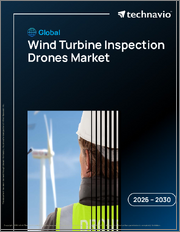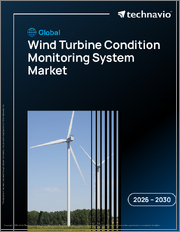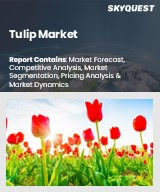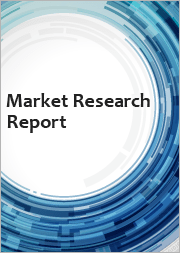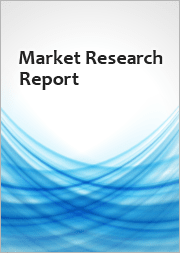
|
시장보고서
상품코드
1438160
풍력 터빈 단조 시장 예측(-2030년) : 유형별, 재료 유형별, 컴포넌트별, 용도별, 지역별 분석Wind Turbine Forging Market Forecasts to 2030 - Global Analysis By Type (Seamless Rolled Rings, Open Die Forgings and Closed Die Forging), By Material Type (Steel, Aluminum and Other Material Types), Component, Application and By Geography |
||||||
Stratistics MRC에 따르면 세계 풍력 터빈 단조 시장은 2023년에 84억 달러를 차지했고 예측 기간 동안 CAGR 9.1%로 성장하고 2030년에는 154억 달러에 이를 전망입니다.
풍력 터빈의 단조는 제어된 가열과 기계적 압력에 의해 블레이드와 허브와 같은 금속 부품을 성형하는 과정입니다. 이로 인해 풍력 터빈용 내구성이 뛰어난 고성능 부품이 확실하게 제조됩니다. 단조 부품은 풍력 터빈의 구조적 무결성과 효율성을 향상시키고 풍력 발전으로 인한 깨끗하고 지속 가능한 에너지 생성에 기여합니다.
Global Wind Energy Council(세계 풍력에너지 협의회)에 따르면 2021년 세계 풍력발전 산업은 호조로 세계 약 94GW의 설비 용량이 추가되었습니다. 유럽, 남미, 중동 및 아프리카에서는 2021년에 육상에서의 신규 설치가 기록되었습니다.
신재생에너지로의 전환
환경문제에 대한 우려와 지속가능한 실천의 필요성을 뒷받침하는 신재생에너지로의 세계의 전환은 풍력터빈 단조시장의 주요 촉진요인입니다. 청정 에너지를 이용하기 위해 풍력 터빈에 대한 수요가 증가함에 따라, 이에 대응하여 견고하고 효율적인 부품의 요구도 증가하고 있습니다. 풍력 터빈 단조는 내구성 있는 부품을 생산하는데 중요한 역할을 하고 있으며, 재생가능 에너지 부문 전체의 성장에 기여하고 화석 연료에 대한 의존도를 줄이고 있습니다.
원재료 가격 변동
원재료 가격의 변동은 풍력 터빈 단조 시장의 큰 억제요인입니다. 풍력 터빈 부품은 특수한 합금과 금속을 필요로 하므로 이러한 재료의 가격 변동은 제조 비용에 영향을 줄 수 있습니다. 예측 불가능한 시장 상황과 지정학적 요인은 공급망의 혼란과 생산 비용 증가로 이어질 수 있습니다. 이로 인해 풍력 터빈 단조의 비용 효과에 문제가 생겨 시장 성장을 방해합니다.
해상풍력발전소 확대
해상 풍력 발전 프로젝트는 높은 에너지 수율과 시각적 영향을 줄임으로써 세계적으로 기세를 늘리고 있습니다. 이 성장은 대형 블레이드와 내구성있는 기초를 포함하여 해상 터빈에 대한 견고한 단조 부품 수요를 촉진합니다. 풍력 터빈의 단조 제조업체는 특수 부품을 제공함으로써 이러한 동향을 활용할 수 있어 해상 풍력에너지 채택 확대에 기여할 수 있습니다.
숙련 노동자 부족
풍력 터빈 부품의 제조에는 전문 기술과 지식이 필요합니다. 산업이 확대됨에 따라 단조 공정, 야금, 정밀 기계 가공에 있어서 숙련 노동자 수요가 높아지고 있습니다. 자격이 부족하면 제조 지연, 품질 문제, 제조 비용 상승이 초래될 수 있습니다. 이 과제는 중요한 부품의 적시에 효율적인 제조를 방해하고 풍력에너지 부문 전체의 성장에 영향을 줄 수 있습니다.
COVID-19의 영향:
COVID-19의 유행은 풍력 터빈 단조 시장에 영향을 미치며 공급망, 노동력 확보, 프로젝트 타임라인에 혼란을 일으키고 있습니다. 운영 정지 및 운영 제한은 제조 산업에 영향을 미치고 풍력 터빈 부품의 생산과 배달 지연으로 이어집니다. 경제 불확실성과 재정적 제약은 신재생에너지 프로젝트에 대한 투자 결정에 더욱 영향을 미치며, 풍력 터빈 단조 부문의 전반적인 성장과 발전에 영향을 미칩니다.
예측 기간 동안 강철 부문이 최대가 될 전망
강철 부문은 재료의 강도, 내구성, 터빈 샤프트, 기어, 허브와 같은 중요한 구성 요소의 제조에 적합하기 때문에 예측 기간 동안 풍력 터빈 단조 시장에서 최대가 될 것으로 예상됩니다. 극단적 인 기상 조건 하에서 강철의 회복력과 풍력 터빈의 동적 부하를 견딜 수있는 능력은 강철을 선호하는 선택입니다. 또한 강철 합금의 발전으로 성능이 향상되었으며 성장에 기여합니다.
해외 시설 부문은 예측 기간 동안 가장 높은 CAGR이 예상됩니다.
해외 풍력에너지에 대한 세계의 주목이 높아짐에 따라 해외 설비 부문은 풍력 터빈 단조 시장에서 유리한 성장을 이루려고 합니다. 해양 설비는 높은 풍속과 더 큰 에너지 수율을 제공하기 때문에 대형 블레이드와 견고한 기초와 같은 특수 단조 부품 수요를 촉진합니다. 기술의 진보와 정부의 이니셔티브이 해외 풍력 발전 프로젝트를 지원함에 따라 해외 환경의 과제에 맞춘 단조 수요가 높아질 것으로 예상되고, 이 부문이 시장 확대의 주요 요인이 되고 있습니다.
최대 점유율을 차지하는 지역:
예측 기간 동안 북미는 가장 큰 점유율로 풍력 터빈 단조 시장을 선도합니다. 이러한 이점은 신재생에너지 프로젝트에 대한 투자 증가, 정부 지원 정책, 이산화탄소 배출량 감소의 중요성에 기인합니다. 게다가 이 지역은 풍력에너지 용량을 확대하기 위해 노력하고 있으며, 풍력 터빈 기술의 진보와 함께 북미를 주요 시장 기업로 자리잡고 있습니다.
CAGR이 가장 높은 지역:
아시아태평양은 신재생에너지에 대한 수요 증가와 풍력발전 프로젝트 투자 증가로 풍력터빈 단조시장의 급성장이 전망되고 있습니다. 중국과 인도와 같은 국가 정부는 지속 가능한 에너지 원을 적극적으로 추진하고 있으며 풍력에너지 개발에 기여하는 환경을 육성하고 있습니다. 인구의 급증과 에너지 수요 증가로 이 지역은 풍력 터빈의 단조에 큰 기회를 가져와 업계 확대에 크게 기여하고 있습니다.
무료 맞춤형 서비스
이 보고서를 구독하는 고객은 다음 무료 맞춤설정 옵션 중 하나를 사용할 수 있습니다.
- 기업 프로파일
- 추가 시장 기업의 종합적 프로파일링(3개사까지)
- 주요 기업의 SWOT 분석(3개사까지)
- 지역 세분화
- 고객의 관심에 응한 주요국 시장 추계·예측·CAGR(주: 타당성 확인에 따름)
- 경쟁 벤치마킹
- 제품 포트폴리오, 지리적 존재, 전략적 제휴에 기반한 주요 기업 벤치마킹
목차
제1장 주요 요약
제2장 서문
- 개요
- 이해관계자
- 조사 범위
- 조사 방법
- 데이터 마이닝
- 데이터 분석
- 데이터 검증
- 조사 접근
- 조사 소스
- 1차 조사 소스
- 2차 조사 소스
- 전제조건
제3장 시장 동향 분석
- 성장 촉진요인
- 억제요인
- 기회
- 위협
- 용도 분석
- COVID-19의 영향
제4장 Porter's Five Forces 분석
- 공급기업의 협상력
- 구매자의 협상력
- 대체품의 위협
- 신규 참가업체의 위협
- 경쟁 기업간 경쟁 관계
제5장 세계의 풍력 터빈 단조 시장 : 유형별
- 심리스 압연 링
- 오픈 다이 단조
- 클로즈 다이 단조
제6장 세계의 풍력 터빈 단조 시장 : 재료 유형별
- 스틸
- 알루미늄
- 기타
제7장 세계의 풍력 터빈 단조 시장 : 컴포넌트별
- 플랜지
- 베어링
- 블레이드
- 기어
- 샤프트
- 기타
제8장 세계의 풍력 터빈 단조 시장 : 용도별
- 온쇼어 설비
- 오프쇼어 설비
제9장 세계의 풍력 터빈 단조 시장 : 지역별
- 북미
- 미국
- 캐나다
- 멕시코
- 유럽
- 독일
- 영국
- 이탈리아
- 프랑스
- 스페인
- 기타 유럽
- 아시아태평양
- 일본
- 중국
- 인도
- 호주
- 뉴질랜드
- 한국
- 기타 아시아태평양
- 남미
- 아르헨티나
- 브라질
- 칠레
- 기타 남미
- 중동 및 아프리카
- 사우디아라비아
- 아랍에미리트(UAE)
- 카타르
- 남아프리카
- 기타 중동 및 아프리카
제10장 주요 발전
- 계약/파트너십/협업/합작투자(JV)
- 인수와 합병
- 신제품 발매
- 사업 확대
- 기타 주요 전략
제11장 기업 프로파일
- Bharat Forge Limited
- Dongkuk Steel Mill Co., Ltd.
- Enercon GmbH
- Energia
- Forgemasters
- GE Energy Infrastructure
- Goldwind Science & Technology Co., Ltd.
- MHI Vestas Offshore Wind
- Nordex SE
- Senvion SA
- Shanghai Electric
- Shanghai Taisheng Wind Power Equipment Co., Ltd.
- Siemens Gamesa Renewable Energy
- Sinovel Wind Group Co., Ltd.
- Suzlon Energy Limited
- TotalEnergies
- Vestas Wind Systems
- Wuxi Turbine Blade Co., Ltd.
- ZF Wind Power
According to Stratistics MRC, the Global Wind Turbine Forging Market is accounted for $8.4 billion in 2023 and is expected to reach $15.4 billion by 2030 growing at a CAGR of 9.1% during the forecast period. Wind turbine forging is the process of shaping and forming metal components, such as blades and hubs, through controlled heating and mechanical pressure. This ensures the creation of durable and high-performance parts for wind turbines. Forged components enhance the structural integrity and efficiency of wind turbines, contributing to the generation of clean and sustainable energy from wind power.
According to the Global Wind Energy Council, The global wind industry had a good year in 2021, with almost 94 GW of capacity added worldwide. Europe, South America, and the Middle East & Africa witnessed records for new onshore installations in 2021.
Market Dynamics:
Driver:
Transition towards renewable energy
The global shift towards renewable energy sources, driven by environmental concerns and the need for sustainable practices, is a key driver in the wind turbine forging market. As the demand for wind turbines rises to harness clean energy, there is a corresponding increase in the need for robust and efficient components. Wind turbine forging plays a vital role in producing durable parts, contributing to the overall growth of the renewable energy sector and reducing dependence on fossil fuels.
Restraint:
Fluctuations in raw material prices
Fluctuations in raw material prices act as a significant restraint in the wind turbine forging market. As wind turbine components require specialized alloys and metals, price volatility in these materials can impact manufacturing costs. Unpredictable market conditions and geopolitical factors can lead to supply chain disruptions and increased production expenses. This, in turn, challenges the cost-effectiveness of wind turbine forging, hindering market growth.
Opportunity:
Expansion of offshore wind farms
Offshore wind projects, due to their higher energy yield and reduced visual impact, are gaining momentum globally. This growth fuels the demand for robust forged components for offshore turbines, such as larger blades and durable foundations. Wind turbine forging manufacturers can capitalize on this trend by providing specialized components, thereby contributing to the increasing adoption of offshore wind energy.
Threat:
Shortage of skilled labour
Manufacturing wind turbine components requires specialized skills and knowledge. As the industry expands, demand for skilled labor in forging processes, metallurgy and precision machining increases. A shortage of qualified personnel may result in delays, quality issues and higher production costs. This challenge could impede the timely and efficient manufacturing of critical components, affecting the overall growth of the wind energy sector.
Covid-19 Impact:
The COVID-19 pandemic has impacted the wind turbine forging market, causing disruptions in the supply chain, workforce availability and project timelines. Lockdowns and restrictions have affected manufacturing operations, leading to delays in the production and delivery of wind turbine components. Economic uncertainties and financial constraints have further influenced investment decisions in renewable energy projects, affecting the overall growth and development of the wind turbine forging sector.
The steel segment is expected to be the largest during the forecast period
The steel segment is anticipated to be the largest in the wind turbine forging market during the forecast period due to the material's strength, durability and suitability for manufacturing critical components like turbine shafts, gears and hubs. Steel's resilience under extreme weather conditions and its ability to withstand the dynamic loads in wind turbines make it a preferred choice. Additionally, ongoing advancements in steel alloys enhance performance, which contributes to their growth.
The offshore installations segment is expected to have the highest CAGR during the forecast period
The offshore installations segment is poised for lucrative growth in the wind turbine forging market due to the increasing global focus on offshore wind energy. Offshore installations offer higher wind speeds and greater energy yield, driving demand for specialized forged components like larger blades and sturdy foundations. As technological advancements and government initiatives support offshore wind projects, the demand for forgings tailored to the challenges of offshore environments is expected to rise, making this segment a key contributor to market expansion.
Region with largest share:
North America is positioned to lead the wind turbine forging market with the largest share during the forecast period. This dominance can be attributed to increased investments in renewable energy projects, supportive government policies and a growing emphasis on reducing carbon emissions. Additionally, the region's commitment to expanding its wind energy capacity, coupled with advancements in wind turbine technology, positions North America as a key market player.
Region with highest CAGR:
The Asia-Pacific region is poised for rapid growth in the wind turbine forging market due to escalating demand for renewable energy and increasing investments in wind power projects. Governments in countries like China and India are actively promoting sustainable energy sources, fostering a conducive environment for wind energy development. With a burgeoning population and rising energy needs, the region presents significant opportunities for wind turbine forging, making it a key contributor to the industry's expansion.
Key players in the market
Some of the key players in Wind Turbine Forging Market include Bharat Forge Limited, Dongkuk Steel Mill Co., Ltd., Enercon GmbH, Energia, Forgemasters, GE Energy Infrastructure, Goldwind Science & Technology Co., Ltd., MHI Vestas Offshore Wind, Nordex SE, Senvion S.A., Shanghai Electric, Shanghai Taisheng Wind Power Equipment Co., Ltd., Siemens Gamesa Renewable Energy, Sinovel Wind Group Co., Ltd., Suzlon Energy Limited, TotalEnergies, Vestas Wind Systems, Wuxi Turbine Blade Co., Ltd. and ZF Wind Power.
Key Developments:
In January 2024, GE Vernova and mining billionaire forge $1.8bn wind turbine supply pact. Squadron Energy - the Australian renewables group owned by mining billionaire Andrew Forrest - said it has forged a A$2.27bn ($1.8bn) "green strategic alliance for wind turbine supply" with manufacturer GE Vernova. The pair kicked off the latest stage of their partnership with an A$1bn deal for GE to equip with its 6MW turbines and supply EPC services to Squadron's 414MW Uungula Wind Farm, said to be the largest underway in the state of New South Wales.
In August 2023, Energia Renewables and Vargronn have partnered to advance offshore wind projects in Ireland, with the potential to deliver up to 1800MW of capacity by 2030. The Irish renewables-focused integrated utility and Norwegian joint venture between Plenitude (Eni) and HitecVision will co-develop projects that can contribute to the Irish government's target of at least 5GW of new offshore wind by 2030, initially.
In June 2023, TotalEnergies and Galp forge alliance on offshore wind in Portugal. The country aims to develop 10GW of offshore wind capacity in the coming years, utilising its long coastline, favourable weather conditions and existing industrial infrastructure. TotalEnergies and Galp will develop offshore wind projects along the country's coast.
Types Covered:
- Seamless Rolled Rings
- Open Die Forgings
- Closed Die Forging
Material Types Covered:
- Steel
- Aluminum
- Other Material Types
Components Covered:
- Flanges
- Bearings
- Blades
- Gears
- Shafts
- Other Components
Applications Covered:
- Onshore Installations
- Offshore Installations
Regions Covered:
- North America
- US
- Canada
- Mexico
- Europe
- Germany
- UK
- Italy
- France
- Spain
- Rest of Europe
- Asia Pacific
- Japan
- China
- India
- Australia
- New Zealand
- South Korea
- Rest of Asia Pacific
- South America
- Argentina
- Brazil
- Chile
- Rest of South America
- Middle East & Africa
- Saudi Arabia
- UAE
- Qatar
- South Africa
- Rest of Middle East & Africa
What our report offers:
- Market share assessments for the regional and country-level segments
- Strategic recommendations for the new entrants
- Covers Market data for the years 2021, 2022, 2023, 2026, and 2030
- Market Trends (Drivers, Constraints, Opportunities, Threats, Challenges, Investment Opportunities, and recommendations)
- Strategic recommendations in key business segments based on the market estimations
- Competitive landscaping mapping the key common trends
- Company profiling with detailed strategies, financials, and recent developments
- Supply chain trends mapping the latest technological advancements
Free Customization Offerings:
All the customers of this report will be entitled to receive one of the following free customization options:
- Company Profiling
- Comprehensive profiling of additional market players (up to 3)
- SWOT Analysis of key players (up to 3)
- Regional Segmentation
- Market estimations, Forecasts and CAGR of any prominent country as per the client's interest (Note: Depends on feasibility check)
- Competitive Benchmarking
- Benchmarking of key players based on product portfolio, geographical presence, and strategic alliances
Table of Contents
1 Executive Summary
2 Preface
- 2.1 Abstract
- 2.2 Stake Holders
- 2.3 Research Scope
- 2.4 Research Methodology
- 2.4.1 Data Mining
- 2.4.2 Data Analysis
- 2.4.3 Data Validation
- 2.4.4 Research Approach
- 2.5 Research Sources
- 2.5.1 Primary Research Sources
- 2.5.2 Secondary Research Sources
- 2.5.3 Assumptions
3 Market Trend Analysis
- 3.1 Introduction
- 3.2 Drivers
- 3.3 Restraints
- 3.4 Opportunities
- 3.5 Threats
- 3.6 Application Analysis
- 3.7 Impact of Covid-19
4 Porters Five Force Analysis
- 4.1 Bargaining power of suppliers
- 4.2 Bargaining power of buyers
- 4.3 Threat of substitutes
- 4.4 Threat of new entrants
- 4.5 Competitive rivalry
5 Global Wind Turbine Forging Market, By Type
- 5.1 Introduction
- 5.2 Seamless Rolled Rings
- 5.3 Open Die Forgings
- 5.4 Closed Die Forging
6 Global Wind Turbine Forging Market, By Material Type
- 6.1 Introduction
- 6.2 Steel
- 6.3 Aluminum
- 6.4 Other Material Types
7 Global Wind Turbine Forging Market, By Component
- 7.1 Introduction
- 7.2 Flanges
- 7.3 Bearings
- 7.4 Blades
- 7.5 Gears
- 7.6 Shafts
- 7.7 Other Components
8 Global Wind Turbine Forging Market, By Application
- 8.1 Introduction
- 8.2 Onshore Installations
- 8.3 Offshore Installations
9 Global Wind Turbine Forging Market, By Geography
- 9.1 Introduction
- 9.2 North America
- 9.2.1 US
- 9.2.2 Canada
- 9.2.3 Mexico
- 9.3 Europe
- 9.3.1 Germany
- 9.3.2 UK
- 9.3.3 Italy
- 9.3.4 France
- 9.3.5 Spain
- 9.3.6 Rest of Europe
- 9.4 Asia Pacific
- 9.4.1 Japan
- 9.4.2 China
- 9.4.3 India
- 9.4.4 Australia
- 9.4.5 New Zealand
- 9.4.6 South Korea
- 9.4.7 Rest of Asia Pacific
- 9.5 South America
- 9.5.1 Argentina
- 9.5.2 Brazil
- 9.5.3 Chile
- 9.5.4 Rest of South America
- 9.6 Middle East & Africa
- 9.6.1 Saudi Arabia
- 9.6.2 UAE
- 9.6.3 Qatar
- 9.6.4 South Africa
- 9.6.5 Rest of Middle East & Africa
10 Key Developments
- 10.1 Agreements, Partnerships, Collaborations and Joint Ventures
- 10.2 Acquisitions & Mergers
- 10.3 New Product Launch
- 10.4 Expansions
- 10.5 Other Key Strategies
11 Company Profiling
- 11.1 Bharat Forge Limited
- 11.2 Dongkuk Steel Mill Co., Ltd.
- 11.3 Enercon GmbH
- 11.4 Energia
- 11.5 Forgemasters
- 11.6 GE Energy Infrastructure
- 11.7 Goldwind Science & Technology Co., Ltd.
- 11.8 MHI Vestas Offshore Wind
- 11.9 Nordex SE
- 11.10 Senvion S.A.
- 11.11 Shanghai Electric
- 11.12 Shanghai Taisheng Wind Power Equipment Co., Ltd.
- 11.13 Siemens Gamesa Renewable Energy
- 11.14 Sinovel Wind Group Co., Ltd.
- 11.15 Suzlon Energy Limited
- 11.16 TotalEnergies
- 11.17 Vestas Wind Systems
- 11.18 Wuxi Turbine Blade Co., Ltd.
- 11.19 ZF Wind Power







